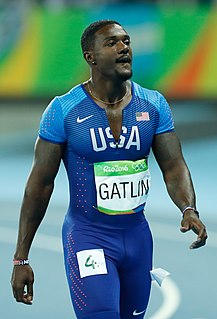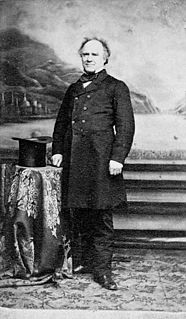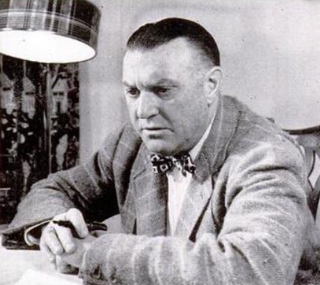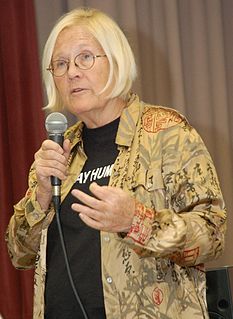Цитата Кирби Пейджа
На войне сила применяется самими воюющими сторонами, не предпринимается никаких усилий, чтобы предать преступников судебному органу, каждая армия выступает в качестве судьи, присяжных и палача.
Связанные цитаты
Я не идеалист, чтобы твердо верить в честность наших судов и в систему присяжных — для меня это не идеал, это живая, работающая реальность. Джентльмены, суд ничем не лучше каждого из вас, сидящего передо мной в этом жюри. Суд так же здоров, как и его присяжные, а присяжные так же здоровы, как и люди, которые его составляют.
Вместо этих сдержек и противовесов, центральных для нашей правовой системы, неграждане сталкиваются с исполнительной властью, которая теперь является следователем, прокурором, судьей, присяжными, тюремщиком или палачом. В духе Оруэлла приказ Буша называет эту мерзость в советском стиле «полным и справедливым судом».
Люди, которые ведут войну, чтобы избежать рабства, возможно, могут победить... Это, несомненно, принесет смерть и страдания тысячам... Но люди, которые послушно позволяют навязывать себе рабство, не прибегая к оборонительной войне, неизбежно обречены на годы смерти и страданий — и каждого из них гораздо больше, чем могла бы принести им любая война… Не существует армии, которая могла бы уничтожить людей на их собственной земле — если они достаточно ее любят.
Вы можете понять, почему первоначальные создатели судебной этики считали недостойным и поставили бы под сомнение легитимность судебного процесса принятия решений, чтобы судьи очерняли их грязью, но то, как мы мешаем людям огромной честности защищать себя, таково: Я думаю, что это глубоко проблематично в штатах, где у вас есть выборная судебная власть или судья подлежит отзыву.
Есть три способа, которыми правитель может навлечь несчастье на свою армию: Приказав армии наступать или отступать, не зная о том, что она не может повиноваться. Это называется хромать армию. Пытаясь управлять армией так же, как он управляет королевством, не зная условий, существующих в армии. Это вызывает беспокойство в умах солдат. Нанимая офицеров своей армии без разбора, из-за незнания военного принципа приспособления к обстоятельствам. Это подрывает уверенность солдат.
Как ветеран армии/армейского резерва США с 29-летним стажем, ушедший в отставку в звании полковника и проработавший 16 лет дипломатом США и ушедший в отставку в 2003 году в знак протеста против войны в Ираке, я твердо верю, что война не решает политические вопросы. Мы должны усердно работать, чтобы заставить правительства наших стран использовать дипломатию, а не оружие.



































